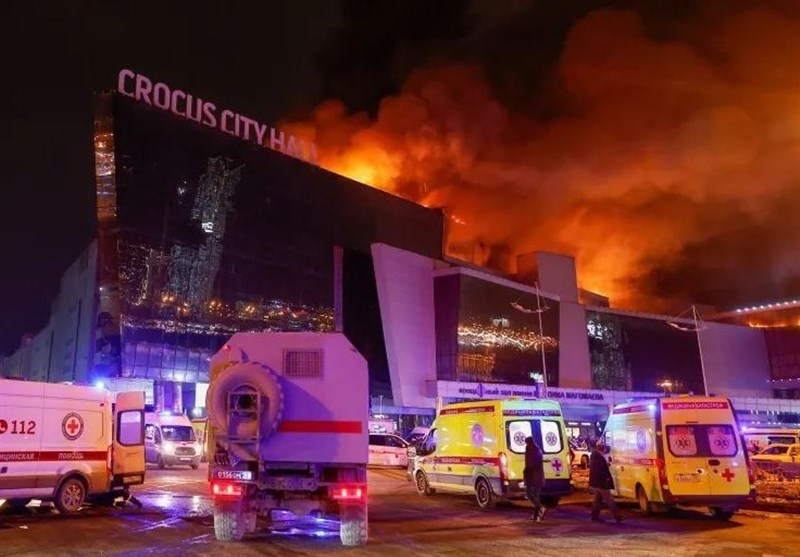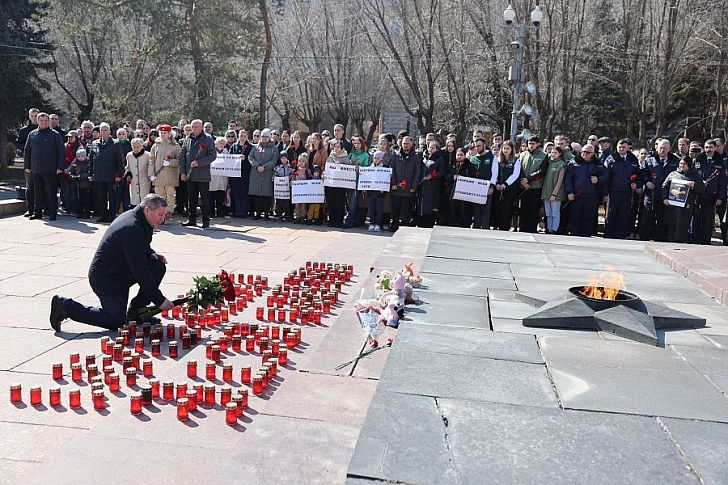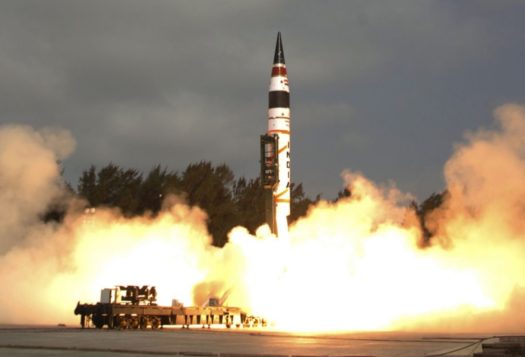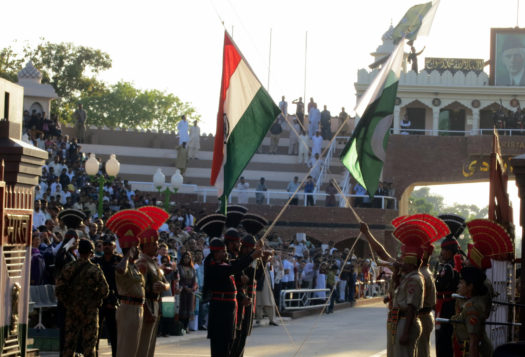
On March 22, 2024, Islamic State-Khorasan Province (ISKP) killed approximately 137 people in Moscow, Russia, in one of the worst terror attacks Russia has ever experienced. As Russians seek answers, Afghanistan watchers are also on high alert, carefully watching and analyzing what this attack says about ISKP capabilities and reach. South Asia Program’s Nonresident Fellow Dr. Amira Jadoon explains the wide implications of such an attack in a brief Q&A.
What does ISKP’s Moscow attack tell us about the terrorism landscape in Afghanistan?
The Moscow attack clearly demonstrates ISKP’s determination to expand its influence beyond its core territories in Afghanistan and Pakistan, which we have seen indicators of through its expanding agenda and recruitment/outreach since 2021. Despite being a weakened organization, relative to its peak years in 2016-2018, ISKP has managed to exploit the changing security and militant landscape in Afghanistan following the U.S. withdrawal and the Taliban’s takeover. The absence of sustained international counterterrorism efforts in the country, combined with the Taliban’s limited resources and its reliance on force to quell any resistance, has provided ISKP with a more permissive operating environment, the outcomes of which we are seeing now. The region is also home to many aggrieved populations facing numerous political and socioeconomic issues, compounded by ineffectual and corrupt governments. This creates societies that are vulnerable to the influence of groups like ISKP, which aggressively exploits grievances to further its agenda. These factors have allowed ISKP to increase its outreach and recruitment with an unprecedented opportunity to position itself as a partner of choice to other weakened militant factions. In 2022, its members were estimated to be between 1500 to 4000 in 2022, and in 2022, the group claimed to have released 858 audio and video outputs, and 175 books.
The attack also highlights the evolving nature of the militant landscape within and around Afghanistan. With the Taliban now in power, the militant landscape is more fragmented, where groups have developed a tendency to work in networks over the past 20 years to survive state operations. ISKP has adeptly exploited the fragmented jihadist infrastructure and positioned itself as an attractive umbrella group for disillusioned fighters to coalesce around, especially given the diminished status and appeal of its global jihadist rival, al-Qaeda. As ISKP continues to adapt and exploit the shifting dynamics in the region, it poses a significant risk to regional stability and security, necessitating a comprehensive and coordinated response from the international community.
ISKP has adeptly exploited the fragmented jihadist infrastructure and positioned itself as an attractive umbrella group for disillusioned fighters to coalesce around, especially given the diminished status and appeal of its global jihadist rival, al-Qaeda
What response, if any, have we seen from the Taliban?
The Taliban has publicly condemned the Moscow attack, but their response to the growing threat posed by ISKP has clearly proven to be inadequate, revealing a lack of sophistication and strategic depth in their counterterrorism approach. ISKP’s networked approach and ability to continually adapt its strategy and tactics to shifting dynamics have allowed the group to remain resilient despite past and current challenges. While targeting ISKP’s mid-tier leadership can constrain the group’s violence in the short term and create a perception that the targeting entity can contain the group, as I have shown in my research elsewhere, ISKP has demonstrated a notable ability to overcome short-term losses, adapting its strategy geographically and operationally. This is a product of ISKP’s organizational attributes and the environment it exists within. The group’s expansive agenda and aggressive, sophisticated, multilingual campaign have also allowed it to portray itself as an ideologically pure alternative to the Taliban. The Taliban, in contrast, has been striving to gain international recognition and establish relations with governments that ISKP vilifies and frames as authoritarian or repressive to Muslims. This has helped ISKP present itself as a more uncompromising and dedicated force in the region.
The Taliban’s heavy-handed approach to dealing with ISKP, while yielding some short-term results, has not addressed the underlying factors that have enabled the group’s growth and resilience – and it is doubtful that they can without any external support or a more comprehensive approach that goes beyond targeted operations. Until then, ISKP is likely to remain a significant threat to regional stability and security despite the Taliban’s efforts to contain it.

Will the attack prompt a shift in U.S. counterterrorism policy in Afghanistan?
The U.S. government had already been concerned about ISKP’s potential to mobilize individuals abroad or conduct external operations, and the recent attacks in Moscow and Iran are likely to exacerbate concerns about the group’s growing ambition and capabilities. However, a significant shift in US counterterrorism policy in Afghanistan is unlikely in the short term. Following the withdrawal of U.S. troops from Afghanistan in 2021, the United States primarily positioned itself to employ over-the-horizon counterterrorism operations, but it has limited intelligence on the ground, lacks reliable partners, and faces a complex political and security situation in the country. The Moscow attack may prompt a reevaluation of the effectiveness of this approach, as it may heighten a sense of urgency among U.S. policymakers, which may prompt intensified diplomatic efforts to seek reliable partners in the region for intelligence sharing and providing targeted counterterrorism assistance.
What are some of the narratives around this attack, and what are their implications for ISKP’s growth?
The narratives surrounding the Moscow attack by ISKP are likely to have significant implications for the group’s growth and reputation for audiences near and far. The attack on a major international target like Moscow, in addition to its recent attack on Iran, reinforces the narrative that ISKP’s operational agenda, which fuses local and global grievances, is matched by its global influence, and that it possesses the capacity to inspire or facilitate attacks beyond its core territories. This lends credence to its extreme ideology and helps frame the attack as a response to Russia’s actions in Muslim-majority regions like Syria and Chechnya, positioning ISKP as a defender of aggrieved Muslim societies. Such narratives may also reinforce the group’s reputation in the broader jihadist movement, serving as a pull for opportunistic militant collaborators while also inspiring other militant factions to attempt similar attacks.
Another prominent narrative linked to such attacks is that ISKP is the only formidable challenger to the Taliban’s authority in Afghanistan. This has the potential to draw in individuals who are anti-Taliban and disaffected Taliban or Tehreek-e-Taliban Pakistan members. Finally, the Moscow attack may also exacerbate interstate tensions and great power rivalries in the region, as states engage in disinformation campaigns, pointing fingers at their rivals for allegedly sponsoring or enabling such terrorist activities. These accusations, whether substantiated or not, could lead to a further deterioration in relations between states, making it more difficult to achieve a coordinated and effective response to the threat posed by ISKP.
The Moscow attack may exacerbate interstate tensions and great power rivalries in the region, as states engage in disinformation campaigns, pointing fingers at their rivals for allegedly sponsoring or enabling such terrorist activities.
How has Russia approached engagement with the Taliban to date, and how might this attack change its approach?
Russia’s approach to engagement with the Taliban has been primarily driven by pragmatic considerations, including concerns about regional stability, counterterrorism, and safeguarding its interests in Central Asia. In recent years, Russia has sought to engage with the Taliban diplomatically, signaling interest in economic investments. Russia also views the Taliban forces as a potential bulwark against the ISKP threat. But this recent attack raises serious questions about the Taliban’s ability to maintain security and the long-term viability of their counterterrorism efforts. This could lead to a more assertive Russian approach in Afghanistan, with Russia increasing its pressure on the Taliban to take more decisive action against ISKP and other militants and engage in more intelligence-sharing. However, Russia is likely to remain wary of the risks associated with a more confrontational approach to the Taliban, given the group’s entrenched position in Afghanistan and limited alternatives.
Also Read: Political Cooperation Can Stem the Resurgent Threat of Militancy in Pakistan
***
Image 1: Vehicles of Russian emergency services are parked near the burning Crocus City Hall concert venue, Wikimedia Commons
Image 2: Memorial for the Crocus City Hall attack at an eternal flame in Volgograd, Wikimedia Commons


